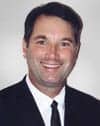A conversation with Keith B. Dressler, DDS, MSD, founder of Elite Physician Services.

Founded in 1997, Elite Physician Services offers payment plans to the so-called elective health industry—including audiology—giving these practices the ability to make high-cost, noncovered health services affordable. The Chattanooga, Tenn-based company has 31 employees and currently handles payment plans for 3,000 audiology practices. Hearing Products Report recently spoke with Elite Physician Services chairman Keith B. Dressler, DDS, MSD—a 44-year-old practicing orthodontist with a busy practice in Chattanooga, who grew up in a health care family—about the plan, and how it can help audiology practices become more profitable.
HPR: Why did you establish Elite Physician Services?
Dressler: Orthodontists have offered pay arrangements to patients [for years], so that the patients could afford their services. Presenting payment plans—or pay arrangements—to patients was a must because of the cost of orthodontics. Being an orthodontist, I realized that if I did not do this, I would probably not put many braces on kids’ teeth because the lack of ease of payment, not the actual cost, would have been a barrier. When I talked to my cousins, who were plastic surgeons, laser eye surgeons, and infertility specialists, I said, “Do you offer your patients a payment plan for your services?” and they said, “No.” So Elite Physician Services was created, initially for the elective health care needs for those specialties.
HPR: How did you get into the audiology market?
Dressler: I have a son who is deaf. One thing I became well aware of was that hearing instruments were not covered by insurance, so, in my mind, they were elective in nature. I began to think that, even though the technology’s not there now, it’s a good time to get a payment option to these people because they are going to be in elective health care, in high-dollar elective health care, meaning the audiologists or the dispensing audiologists or the ENTs or whoever was going to be handling the front end of this; they’re going to need some sort of pay arrangements for patients in order to be able to really sell them the best technology. You can’t sell $3,000, $4,000, $5,000 health care items if you don’t put them on a payment plan. If you made the patients pay it all up front, there are very few people who would be able to benefit from the technology; so, having a payment plan available, in my mind, made the best technology more affordable to the masses, which is who you want to have the technology. I experienced this with my son. At that time he was 5 years old, and he was in an all hearing-impaired class. Most of the students had hearing devices, and there were about three or four kids who did not. Even though they needed them, they could not afford them, and the ones who did have them couldn’t afford the best technology. To me, it was never more apparent that some sort of pay arrangements needed to be [provided] by whoever is dispensing these devices to make them affordable to the patient, it is a true shame that children growing up get thrown way behind socially and academically if they can’t hear well.
HPR: Did being an orthodontist make it harder for you to market the plan to audiologists?
Dressler: Being an orthodontist, in my opinion, gives me a leg up. I can give them advice on how to make a professional, consistent, proven fee presentation and actually how to manage their practice to where cost is not a concern of the patient, and you alleviate that barrier. And, in my mind, why should either young or experienced audiologists have to go through a learning curve of how to sell higher-dollar health care? So I can really speed up that learning curve. I’ve already got it to where it’s cookbook—here’s what you say, here’s how you do it, here’s why you want to say it this way, and here’s the language you want to use. It’s a lot easier for them to implement this process in their office and actually make themselves more efficient and more effective and more profitable all without having to figure it out [themselves].
HPR: You are a frequent lecturer to AuD classes. What advice are you giving these audiology students about business and practice management?
Dressler: What I try to convey in my lectures is not just the implementation of a payment plan to make it more affordable to people to get them to say “yes,” but to keep audiologists from having to down sell because of cost, putting [patients] in inferior devices that really don’t help them. When you end up putting them in the best technology that really and truly improves their hearing, does what it says it’s going to do, there are very few returns, the satisfaction rate is up rather than down, you’ve got happy customers, you’ve made it easy for them to afford the best, and you’ve put them in the best. For me, the dynamics of a practice will change dramatically, the better the technology you can get in the patient’s ears, when warranted. I’m not saying put digitals in everybody, because digitals are not the treatment modality of choice. That’s why they’re the audiologists. They know what’s best for the patient. When it really and truly is best for the patient, that’s what they should be selling them.
HPR: Is the sales side of practice management a big weakness of many audiology practices?
Dressler: I don’t want to say a weakness, they’re just not used to it. They’re going from selling $500, $700, and $1,000 items to selling $3,000, $4,000, and $5,000 items. That’s a big jump, and one of the things I try to let them know is that there are many, many factors that are going to ultimately sell this device, the first being the appearance of the practice. When audiologists—and this is why I speak to those in AuD programs—graduate, they need to have a more upscale office. You can’t have a little cubbyhole type of office with papers scattered everywhere, dust on the furniture, duct tape on the chairs, and then you’re trying to tell [patients] that this device is the best for them and sell them something that costs $4,000. It doesn’t match. It isn’t going to work. You have to have a more professional office, your staff has to be more friendly, you have to roll out the red carpet, it’s going to have to change to more like an orthodontic environment or a plastic surgery environment where the offices are nicer, the people are friendlier, everything is done on a higher professional level.
HPR: How does the payment plan work? Does it work the same for each specialty?
Dressler: It’s the same for everybody. Basically, we offer three ways to pay. Option one is a monthly payment up to 60 months. The second option given is, if patients pay all up front, they get a [discount] of 8% off, and then the third option is an in-house option that has a down payment and a monthly payment up to 24 months with no interest. The audiologist should give only [the first] two. I would not carry the debt if I was an audiologist. I would basically give option one if patients want a monthly payment or option two if they choose to pay with check, cash, or credit card up front in full and give them a small discount, and that’s what we teach the practices to do.
HPR: Does this program work only for large, high-volume audiology practices?
Dressler: Any practice can do this. We do have a minimum financed amount of $1,000, so as long as the bill is at least $1,000, it doesn’t matter. That’s the beauty about what we do. We gear it toward any practice. The one thing that will happen to smaller practices is that they will get bigger just because they are offering more ways to pay, which means they’re going to get more consultations that turn into sold hearing instruments. Even though they won’t see more people, they’re converting more of who they do speak to. They’re closing more deals.
HPR: The program sounds like it could generate more business, but is there a downside? What about the administrative costs involved?
Dressler: All the administrative costs are handled by [Elite Physician Services], which is the great thing about this [program]. It was all designed for the doctor in mind or the audiologist in mind. Audiologists don’t need their staff tied up doing all this extra work. There is very minimal staff involvement with it, and, subsequently, it is easy. It’s very easy for the offices that use it whether they’re large or small. We make our money with a 10% administrative fee for booked loans.
HPR: What happens if a patient does not make their monthly payments? Does the audiologist have to pursue the payment themselves?
Dressler: There’s no recourse at all for the audiologist. If the patients don’t pay, it’s up to [Elite Physician Services] to go after them and get them, not the audiologists.
HPR: What marketing support do you offer?
Dressler: We offer it in two ways. We offer it from the standpoint of scripting the fee presentation and scripting any type of verbiage that they may market to their existing database or in the newspaper or on TV or on the radio. We have a marketing department that will help them at no cost…with their advertisement so it will be most effective to generate the leads they want. We try to keep them out of the pitfalls, use creative verbiage if they are going to advertise or do a direct mail piece, and try to analyze their office to see what they can handle and not handle.
HPR: Are there any other ways Elite Physician Services can help an audiology practice?
Dressler: I found that a lot of audiology offices don’t even offer MasterCard and Visa as a way to pay. I think that’s a big mistake as well, because so many people have credit cards. Elite provides offices with a couple of things if they do not have that type of equipment in their office, meaning a MasterCard/Visa machine. Elite can set them up, get them the appropriate hardware. If they do have it, Elite has MasterCard/Visa rates that are the lowest in the whole country in health care. They are 1.59%. Most [companies] are going to charge you 2.5% to 3% for MasterCard/Visa transactions, but, because we have such a big base of doctors who use us, we’re able to negotiate a much lower rate on MasterCard/Visa transactions than if they were going to go as an individual office.
N. L. Shepherd is a contributing writer for Hearing Products Report.





